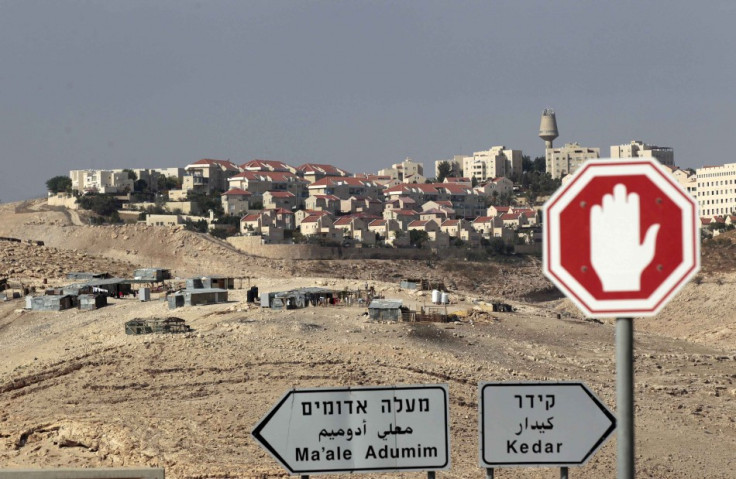Netanyahu: Israel to stop building settlements in the West Bank

Prime Minister Benjamin Netanyahu has announced that the Israeli government will not build any new settlements in the West Bank, a territory conquered by the country in 1967.
He made the comment during a meeting with settlement leaders, in which he said he is concerned about "the interests of the state".
He was quoted by Yediot Ahronot as saying: "The settlements can no longer be developed and we must preserve that which exist."
However, his Likud party released a statement saying that the leader did not rule out construction "in Judea and Samaria [West Bank]" and "he is promoting the settlement enterprise in a wise and responsible manner given a complex international reality".
Netanyahu's comments were met with concern by the Yesha Council – representative of Zionist settlers in the West Bank – who warned Israel will lose its right to exist if it does not build further settlements.
Speaking to IBTimes UK, Mark Regev, spokesperson for Netanyahu, confirmed that the government is not planning further settlements.
"We haven't built a new settlement for two decades," he said. "The future of the settlements will be determined in peace talks. Israel is ready to engage on this and the other core issues to achieve a secure and lasting peace with the Palestinians."
We don't trust Netanyahu
Issa Amro, founder of the Youth Against Settlements organisation, told IBTimes UK that he and his organisation do not believe Netanyahu's claim.
"[Netanyahu] is one of the most famous liars. We want to hear that from his colleagues and partners who are working only for settlements," he said. "This is a kind of propaganda. On the contrary, we see more settlement projects all over Palestine, we see more settler violence.
"[Netanyahu] did not agree this with the Palestinian Authority. According to international law and the Geneva convention all settlements are illegal and we have more than 132 outposts in Palestine," Amro continued.
"If he wants to stop building settlements, he should convince us first by destroying the outposts and give Palestinians their rights."
In a previous interview with IBTimes UK, Samer F Makhlouf, director of One Voice Palestine, said: "Settlements grow on a daily basis and people get confused and angry. We reject the settlement enterprise and the occupation, which causes daily difficulties. For example, we are not allowed to have 3G on our phones for security reasons and if I want to visit Jerusalem, I need a permit. [Israel] are controlling everything."
Richard Pater, Director of BICOM (British Israel Communications and Research Centre), told IBTimes UK: "The settlement issue is hotly contested inside Israel. In general most Israelis look at it with a far more nuanced perspective than outsiders.
"Furthermore the blocks of settlements, especially those contiguous with the Green Line [demarcation lines created in the aftermath of the 1948 Arab-Israeli war] have the support of the majority," he said, adding that many Israelis agree with Nethayanu's view that Jerusalem is not a settlement and thus the construction of Jewish homes over the Green Line in Jerusalem is met with consensus.
© Copyright IBTimes 2025. All rights reserved.






















